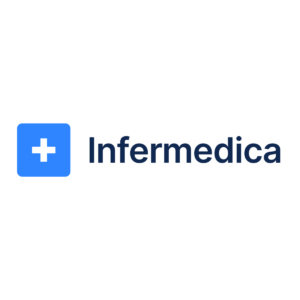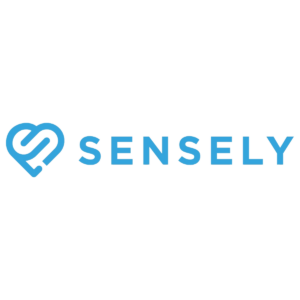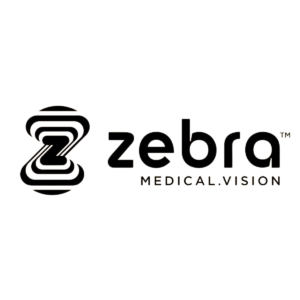AI for Healthcare
AI for Healthcare – Transforming Medicine with Intelligent Technology
Elevate patient outcomes and reduce operational bottlenecks with data-driven AI innovations.
Healthcare providers face a constant challenge: delivering high-quality patient care while navigating tight budgets, evolving regulations, and complex administrative tasks. Artificial Intelligence (AI) offers a powerful way to streamline clinical workflows, predict patient needs, and optimize resource allocation. By processing vast amounts of patient data at unprecedented speed, AI-driven tools deliver actionable insights that help physicians make more accurate diagnoses and tailor treatments to individual patients. As you explore the rapidly growing world of AI in healthcare, Replace Humans provides a curated selection of cutting-edge solutions designed to modernize your practice and improve the entire patient journey.
Key Benefits of AI in Healthcare
Enhance efficiency, reduce costs, and deliver targeted treatments through intelligent automation and advanced analytics.
Advanced Diagnostics
AI-driven platforms interpret medical imaging—such as X-rays, MRIs, and CT scans—with remarkable accuracy, helping healthcare professionals detect conditions like tumors, fractures, or irregularities more swiftly. These tools also reduce the likelihood of human error by flagging potential issues that might otherwise go unnoticed.
Personalized Treatment Plans
Data analytics engines compile information from patient histories, genetic profiles, and lifestyle factors, empowering doctors to create highly personalized care plans. By predicting likely responses to medications or therapies, AI algorithms help minimize trial-and-error treatments, leading to better outcomes and higher patient satisfaction.
Streamlined Administrative Workflows
AI tools automate tasks that traditionally devour staff time, from scheduling appointments to managing patient records. This translates into more efficient resource allocation and ensures that doctors, nurses, and other medical professionals can focus on patient-facing responsibilities rather than administrative burdens.
Real-Time Patient Monitoring
Wearables and IoT devices—when paired with AI—enable continuous monitoring of vital signs, alerting clinicians to abnormalities that may warrant immediate intervention. This proactive care model can significantly reduce hospital readmissions and improve long-term patient well-being.
Cost Savings and Operational Efficiency
By catching conditions earlier, automating billing processes, and optimizing staff deployment, AI technologies help healthcare institutions curb operational costs. Over time, these cost savings can be reinvested into additional staff training, technological upgrades, or new patient services.
Top Tools on Replace Humans
Explore proven solutions tailored to medical organizations of all sizes and specialties.
Replace Humans curates AI platforms designed to elevate diagnostics, streamline patient care, and boost overall practice efficiency. Below are a few standout categories you’ll discover:
AI-Assisted Radiology
Accelerate imaging diagnostics.
Tools in this category use machine learning to analyze scans and detect early signs of disease, helping radiologists make more accurate assessments in less time.
Predictive Analytics Platforms
Anticipate health risks and optimize treatment.
These platforms forecast disease progression by analyzing patient histories and genetic data, allowing clinicians to intervene proactively.
Telemedicine & Virtual Care Solutions
Expand access and reduce wait times.
AI chatbots, video conferencing tools, and remote patient monitoring systems revolutionize how healthcare providers connect with patients—especially those in underserved or rural areas.
Electronic Health Record (EHR) Optimizers
Automate data entry and retrieval.
EHR tools enhanced by AI speed up paperwork, integrate clinical information into one comprehensive system, and reduce the administrative load on staff.
AI-Powered Drug Discovery
Shorten R&D timelines and reduce costs.
AI-based solutions facilitate faster, more targeted pharmaceutical research, from identifying promising drug candidates to simulating clinical outcomes.
Implementing AI into Your Healthcare Strategy
Identify core pain points, choose scalable solutions, and integrate AI across your clinical ecosystem.
Assess Practice Needs
Pinpoint the areas of greatest urgency—do you need faster imaging analysis, improved scheduling, or better post-discharge follow-up? By isolating these bottlenecks, you’ll have a clearer vision of which AI solutions will deliver the most significant returns.
Choose the Right Tools
Browse the offerings on Replace Humans to match AI capabilities with your specific clinical and administrative requirements. A small clinic might benefit most from EHR automation tools, while a large hospital system may prioritize comprehensive patient monitoring and analytics platforms.
Define Measurable Goals
Set clear objectives—like reducing patient wait times by 30% or lowering readmission rates by 15%. These metrics will help you track the effectiveness of your chosen AI tools and adjust strategies as needed.
Integrate and Train
Work closely with IT teams and software vendors to ensure AI platforms integrate seamlessly with existing systems, such as EHR databases. Provide thorough training for medical staff to promote adoption and confidence in the new technology.
Measure and Refine
Continuously evaluate key performance indicators, patient feedback, and cost analyses. AI models learn and improve over time, so regular reviews of both clinical outcomes and system efficiency will guide future updates or expansions.
Future Outlook
Prepare for rapid advancements as AI redefines the healthcare landscape.
Emerging trends like digital twins, genomic-based recommendations, and advanced AI-driven surgery are poised to reshape standard medical practices. Virtual nursing assistants may soon handle routine patient interactions, and continuous learning algorithms will drive personalized care to new heights. Healthcare providers who act now to adopt and refine AI-driven solutions will keep pace and help set industry standards for accuracy, efficiency, and compassionate care.
Embrace AI to create a more responsive, cost-effective, patient-centered healthcare experience.
Whether you’re a primary care physician looking to lighten administrative tasks or a large hospital striving for more accurate diagnostics, AI solutions are transforming the healthcare space at every level. Visit Replace Humans to explore a diverse range of cutting-edge AI tools—each designed to increase efficiency, reduce burnout, and elevate patient outcomes. By taking proactive steps to implement these technologies, you’ll position your practice or organization to thrive in an era of ever-evolving healthcare demands.
Showing all 4 results
-

Infermedica – AI Symptom Checker & Diagnostic Assistant
Try it -

Replika – AI Companion for Emotional Support and Personal Growth
Try it -

Sensely – AI Virtual Nurse for Patient Engagement
Try it -

Zebra Medical Vision – AI for Radiology & Medical Imaging
Try it
AI for Healthcare – Transforming Medicine with Intelligent Technology
Elevate patient outcomes and reduce operational bottlenecks with data-driven AI innovations.
Healthcare providers face a constant challenge: delivering high-quality patient care while navigating tight budgets, evolving regulations, and complex administrative tasks. Artificial Intelligence (AI) offers a powerful way to streamline clinical workflows, predict patient needs, and optimize resource allocation. By processing vast amounts of patient data at unprecedented speed, AI-driven tools deliver actionable insights that help physicians make more accurate diagnoses and tailor treatments to individual patients. As you explore the rapidly growing world of AI in healthcare, Replace Humans provides a curated selection of cutting-edge solutions designed to modernize your practice and improve the entire patient journey.
Key Benefits of AI in Healthcare
Enhance efficiency, reduce costs, and deliver targeted treatments through intelligent automation and advanced analytics.
Advanced Diagnostics
AI-driven platforms interpret medical imaging—such as X-rays, MRIs, and CT scans—with remarkable accuracy, helping healthcare professionals detect conditions like tumors, fractures, or irregularities more swiftly. These tools also reduce the likelihood of human error by flagging potential issues that might otherwise go unnoticed.
Personalized Treatment Plans
Data analytics engines compile information from patient histories, genetic profiles, and lifestyle factors, empowering doctors to create highly personalized care plans. By predicting likely responses to medications or therapies, AI algorithms help minimize trial-and-error treatments, leading to better outcomes and higher patient satisfaction.
Streamlined Administrative Workflows
AI tools automate tasks that traditionally devour staff time, from scheduling appointments to managing patient records. This translates into more efficient resource allocation and ensures that doctors, nurses, and other medical professionals can focus on patient-facing responsibilities rather than administrative burdens.
Real-Time Patient Monitoring
Wearables and IoT devices—when paired with AI—enable continuous monitoring of vital signs, alerting clinicians to abnormalities that may warrant immediate intervention. This proactive care model can significantly reduce hospital readmissions and improve long-term patient well-being.
Cost Savings and Operational Efficiency
By catching conditions earlier, automating billing processes, and optimizing staff deployment, AI technologies help healthcare institutions curb operational costs. Over time, these cost savings can be reinvested into additional staff training, technological upgrades, or new patient services.
Top Tools on Replace Humans
Explore proven solutions tailored to medical organizations of all sizes and specialties.
Replace Humans curates AI platforms designed to elevate diagnostics, streamline patient care, and boost overall practice efficiency. Below are a few standout categories you’ll discover:
AI-Assisted Radiology
Accelerate imaging diagnostics.
Tools in this category use machine learning to analyze scans and detect early signs of disease, helping radiologists make more accurate assessments in less time.
Predictive Analytics Platforms
Anticipate health risks and optimize treatment.
These platforms forecast disease progression by analyzing patient histories and genetic data, allowing clinicians to intervene proactively.
Telemedicine & Virtual Care Solutions
Expand access and reduce wait times.
AI chatbots, video conferencing tools, and remote patient monitoring systems revolutionize how healthcare providers connect with patients—especially those in underserved or rural areas.
Electronic Health Record (EHR) Optimizers
Automate data entry and retrieval.
EHR tools enhanced by AI speed up paperwork, integrate clinical information into one comprehensive system, and reduce the administrative load on staff.
AI-Powered Drug Discovery
Shorten R&D timelines and reduce costs.
AI-based solutions facilitate faster, more targeted pharmaceutical research, from identifying promising drug candidates to simulating clinical outcomes.
Implementing AI into Your Healthcare Strategy
Identify core pain points, choose scalable solutions, and integrate AI across your clinical ecosystem.
Assess Practice Needs
Pinpoint the areas of greatest urgency—do you need faster imaging analysis, improved scheduling, or better post-discharge follow-up? By isolating these bottlenecks, you’ll have a clearer vision of which AI solutions will deliver the most significant returns.
Choose the Right Tools
Browse the offerings on Replace Humans to match AI capabilities with your specific clinical and administrative requirements. A small clinic might benefit most from EHR automation tools, while a large hospital system may prioritize comprehensive patient monitoring and analytics platforms.
Define Measurable Goals
Set clear objectives—like reducing patient wait times by 30% or lowering readmission rates by 15%. These metrics will help you track the effectiveness of your chosen AI tools and adjust strategies as needed.
Integrate and Train
Work closely with IT teams and software vendors to ensure AI platforms integrate seamlessly with existing systems, such as EHR databases. Provide thorough training for medical staff to promote adoption and confidence in the new technology.
Measure and Refine
Continuously evaluate key performance indicators, patient feedback, and cost analyses. AI models learn and improve over time, so regular reviews of both clinical outcomes and system efficiency will guide future updates or expansions.
Future Outlook
Prepare for rapid advancements as AI redefines the healthcare landscape.
Emerging trends like digital twins, genomic-based recommendations, and advanced AI-driven surgery are poised to reshape standard medical practices. Virtual nursing assistants may soon handle routine patient interactions, and continuous learning algorithms will drive personalized care to new heights. Healthcare providers who act now to adopt and refine AI-driven solutions will keep pace and help set industry standards for accuracy, efficiency, and compassionate care.
Embrace AI to create a more responsive, cost-effective, patient-centered healthcare experience.
Whether you’re a primary care physician looking to lighten administrative tasks or a large hospital striving for more accurate diagnostics, AI solutions are transforming the healthcare space at every level. Visit Replace Humans to explore a diverse range of cutting-edge AI tools—each designed to increase efficiency, reduce burnout, and elevate patient outcomes. By taking proactive steps to implement these technologies, you’ll position your practice or organization to thrive in an era of ever-evolving healthcare demands.
